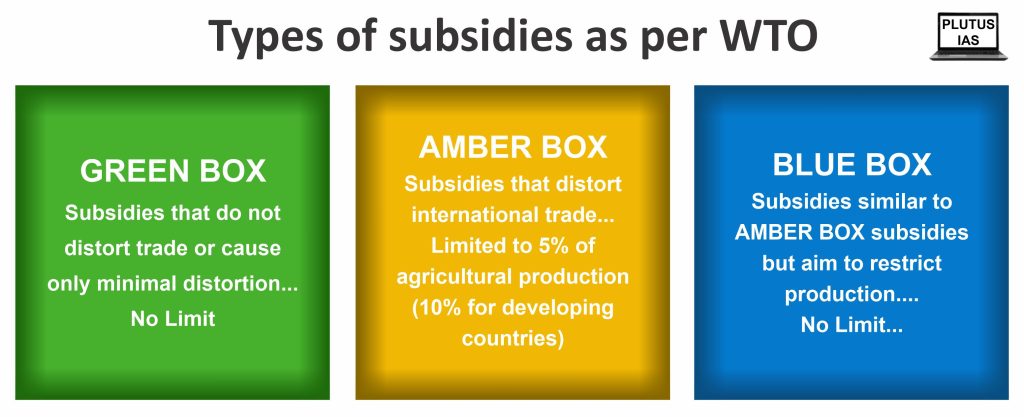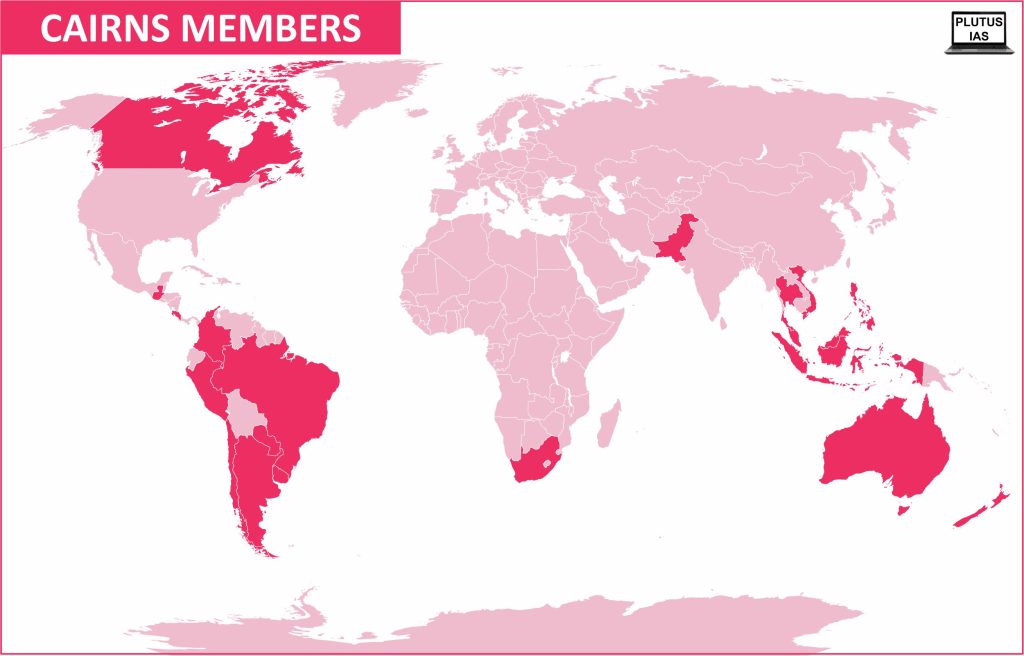07 Mar Tensions between Thailand and India increase at WTO
This article covers ‘Daily Current Affairs’ and the topic details of “Tensions between Thailand and India increase at WTO”.This topic is relevant in the “International Relations and India Economy” section of the UPSC CSE exam.
Why in the News?
Thailand’s envoy to the World Trade Organisation (WTO) recently accused India of selling rice at unfairly low rates, which were backed by government subsidies. Thailand claims that India’s Public Distribution System (PDS), a system where the government buys key agricultural products from producers and sells them to the public at low prices, is not intended for its citizens but rather for acquiring the export market. Thailand is also a part of
Thailand’s Concerns Regarding India’s Agricultural Subsidies:
- Unfair Competition and Market Distortion:
- Thailand is concerned that India’s Public Stockholding Programme (PSH), which heavily subsidises rice production, distorts global food prices and creates an unfair playing field for unsubsidised exporters like Thailand.
- Subsidised production can lead to overproduction and lower prices in the international market, making it difficult for unsubsidised competitors to compete effectively.
- Violation of International Trade Rules:
- Thailand argues that India’s excessive rice subsidies violate World Trade Organization (WTO) regulations, specifically the de minimis limits on domestic support for agricultural products.
- India’s subsidy level exceeding the permitted 10% limit not only affects market competitiveness but also undermines the principles of fair trade established by the WTO’s Agreement on Agriculture.
- Advocating for Trade Liberalisation:
- As a member of the Cairns Group, which promotes free trade in agriculture, Thailand supports reducing trade barriers and subsidies that distort global agricultural markets.
- The group actively lobbies against India’s Minimum Support Price (MSP) scheme, urging them to reduce or dismantle it to create a more level playing field for international trade.
India’s Position on Agricultural Subsidies:
- Public Stockholding Program:
A Necessity for Food Security and Farmer Welfare:
India defends its Public Stockholding Programme (PSH) as a crucial policy tool to ensure food security and support small farmers by offering them Minimum Support Prices (MSPs) for their crops like rice and wheat. This program also plays a vital role in distributing food grains to the underprivileged through social welfare schemes.
- Addressing Farmer Concerns:
India acknowledges the need to support its small farmers who face various challenges, including persistent issues like the Farmer Protest 2.0. These protests highlight the farmers’ demands for legal guarantees on MSPs, debt relief, and other forms of support. Subsidies are considered an essential measure to address these concerns and ensure the well-being of a large portion of the rural population.
- Challenging Outdated Subsidy Calculations:
India contests the methodology used by the WTO to calculate agricultural subsidies. It argues that the current system, based on fixed and outdated prices from 1986-88, disproportionately penalises developing countries like India. During WTO negotiations on agriculture, India seeks changes to the subsidy calculation methods for a fairer and more accurate assessment of its support programs.
- Comparative Perspective on Subsidies:
India points out the significant disparity between its agricultural subsidies (averaging around $300 per farmer) and the much larger subsidies offered by developed nations like the US and the EU, which can reach up to $40,000 per farmer. This comparison highlights the comparatively modest level of support India provides to its agricultural sector.
- Utilising Peace Clause Provisions:
While acknowledging the temporary protection offered by the WTO’s peace clause for developing countries, India recognises the challenging implementation process associated with this clause. The clause requires extensive notification procedures, which can be complex and time-consuming to navigate.

About Cairns Group
The Cairns Group is a coalition of agricultural exporting countries established in 1986 during the Uruguay Round of the General Agreement on Tariffs and Trade (GATT) negotiations. Named after the city of Cairns, Australia, where its founding meeting took place, the group currently comprises 19 member countries from across the globe, united by their shared commitment to:
- Promoting free and fair trade in agriculture: This includes advocating for the reduction of trade barriers such as tariffs and quotas and the elimination of trade-distorting subsidies.
- Ensuring a level playing field for agricultural producers: The group seeks to address imbalances in the global agricultural trade system that disadvantage efficient, low-cost producers.
- Promoting market-oriented reforms: The Cairns Group advocates for policy changes that encourage efficiency, innovation, and competition in the agricultural sector.

Download plutus ias current affairs eng med 7th March 2024
Prelims practise question
Q1. With reference to Trade-Related Investment Measures (TRIMS), which of the following statements is/are correct? (UPSC Prelims-2020)
- Quantitative restrictions on imports by foreign investors are prohibited.
- They apply to investment measures related to trade in both goods and services.
- They are not concerned with the regulation of foreign investment.
Select the correct answer using the code given below:
(a) 1 and 2 only
(b) 2 only
(c) 1 and 3 only
(d) 1, 2 and 3 only
Answer: C
Mains practise questions
Q1. What are the key areas of reform if the WTO has to survive in the present context of the ‘Trade War’, especially keeping in mind the interest of India? (UPSC Mains-2018)
I am a content developer and have done my Post Graduation in Political Science. I have given 2 UPSC mains, 1 IB ACIO interview and have cleared UGC NET JRF too.



No Comments